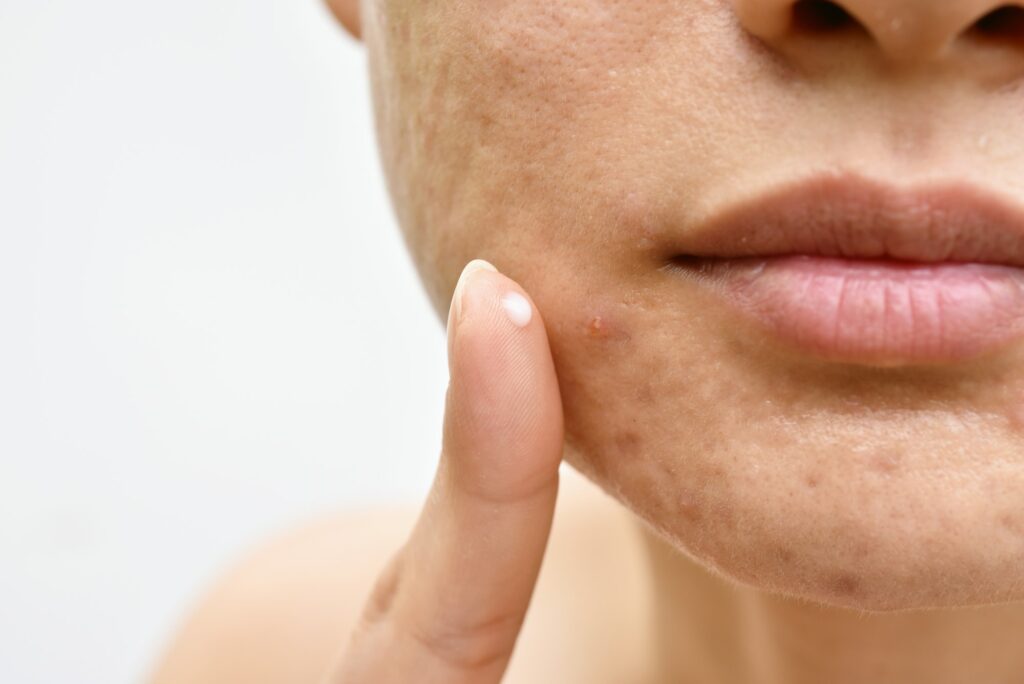The Basic Principles Of benzoyl peroxide before and after
The Basic Principles Of benzoyl peroxide before and after
Blog Article

Allergic Response to Acne Medication
Acne is a standard pores and skin situation that influences an incredible number of persons worldwide. Though you will discover numerous treatments out there, ranging from over-the-counter creams to prescription remedies, not all treatment options are suitable for everybody. A single significant problem will be the probable for an allergic reaction to acne medication. This article will check out what an allergic response to acne medication involves, the signs to Be careful for, and the way to manage and prevent these reactions.
Comprehension Allergic Reactions
An allergic response happens if the immune procedure mistakenly identifies a harmless compound as a threat and responds by releasing chemicals like histamines. These chemicals cause symptoms that may range from moderate to intense. When it comes to acne medication, the substances in these products and solutions can in some cases induce an allergic response.
Frequent Acne Medicines
Before diving into allergic reactions, It is really vital to comprehend the kinds of acne medicines that are commonly used:
Benzoyl Peroxide: An in excess of-the-counter treatment that kills microorganisms and dries out the pores and skin. - Salicylic Acid: Another more than-the-counter solution that assists to exfoliate the pores and skin and unclog pores.
Retinoids: Prescription prescription drugs that promote cell turnover and prevent clogged pores. Antibiotics: Equally topical and oral antibiotics is often prescribed to lower microbes and inflammation. Hormonal Treatments: Medications like delivery Command supplements that regulate hormones and decrease acne.
Indicators of an Allergic Response to Acne Medication
Recognizing the indicators of an allergic response to acne medication is vital for well timed intervention. Indicators may vary based on the unique and the particular medication but frequently incorporate:
- Skin Redness: Red, inflamed skin is a standard sign of an allergic reaction.
Itching: Persistent itching can point out an allergic reaction. Swelling: Swelling on the facial area, lips, or tongue is usually a critical symptom. Rash: A rash or hives could develop about the pores and skin. Problems Breathing: In intense cases, an allergic response can result in problems respiratory, which demands instant health-related focus.
Situation Studies and Data
To better understand the prevalence and impression of allergic reactions to acne medication, let's look at some circumstance scientific studies and studies:
Situation Review one: Benzoyl Peroxide Allergy
A 17-12 months-aged female commenced employing a benzoyl peroxide-based acne treatment method. Within a few days, she seen critical redness and itching on her facial area. Upon consulting a dermatologist, she was diagnosed using an allergic response to benzoyl peroxide. She was recommended to discontinue the medication and change to your milder, non-allergenic cure.
Scenario Analyze 2: Retinoid Response
A 22-yr-outdated male was prescribed a retinoid cream for extreme acne. After a 7 days of use, he designed a rash and swelling close to his eyes. His dermatologist confirmed an allergic response on the retinoid and advisable an alternate remedy plan.
Data
As outlined by a research published during the Journal on the American Academy of Dermatology, roughly five-ten% of individuals using topical acne solutions knowledge some method of allergic reaction. Even though most reactions are moderate, about 1-2% of scenarios may be critical, requiring fast professional medical intervention.
Taking care of Allergic Reactions
For those who suspect that you are suffering from an allergic response to acne medication, it's necessary to get fast action:
Discontinue Use: End using the medication quickly. Check with a Healthcare Skilled: Look for guidance from the dermatologist or healthcare provider. Use Antihistamines: Above-the-counter antihistamines might help ease gentle signs and symptoms. Use Chilly Compresses: Chilly compresses can decrease swelling and itching. Find Crisis Care: If you practical experience serious signs or symptoms like difficulty respiration, search for crisis healthcare care quickly.
Preventing Allergic Reactions
Avoidance is always better than heal. Below are a few tips to assist avoid allergic reactions to acne medication:
Patch Examination: Often execute a patch check just before using a new acne medication. Apply a little total into a discreet region of pores and skin and wait around 24-48 hrs to find out if any reaction happens.Read Labels: Very carefully study the component record on acne prescription drugs to identify potential allergens. Seek the advice of a Dermatologist: Before starting any new procedure, check with a dermatologist to ensure It truly is well suited for your skin sort. Get started Little by little: Introduce new remedies steadily to monitor how your skin reacts.- Use Hypoallergenic Goods: Go for hypoallergenic acne therapies which might be more unlikely to lead to allergic reactions.
Substitute Treatment options
For those who have knowledgeable an allergic response to classic acne drugs, you will find alternate therapies content obtainable:
Normal Remedies: Substances like tea tree oil, aloe vera, and honey have anti-inflammatory and antibacterial Homes that will help deal with acne devoid of creating allergic reactions. Light-weight Therapy: Blue mild therapy can eliminate acne-producing bacteria without the use of chemical substances. Dietary Improvements: Sometimes, dietary modifications will help control acne. Minimizing sugar and dairy consumption is proven to improve pores and skin wellbeing in a few folks.
Conclusion
Allergic reactions to acne medication could be distressing, but They're workable with the best information and safety measures. By knowledge the indicators, taking rapid action, and consulting healthcare professionals, you could efficiently regulate and prevent allergic reactions. Generally carry out patch exams, browse labels, and seek advice from a dermatologist before beginning any new procedure. If conventional acne drugs are usually not suitable for you, take into account choice treatment plans that are less likely to cause allergic reactions. Your journey to distinct skin does not have being hindered by allergic reactions; with the appropriate tactic, you will find a cure that works for you personally. Report this page